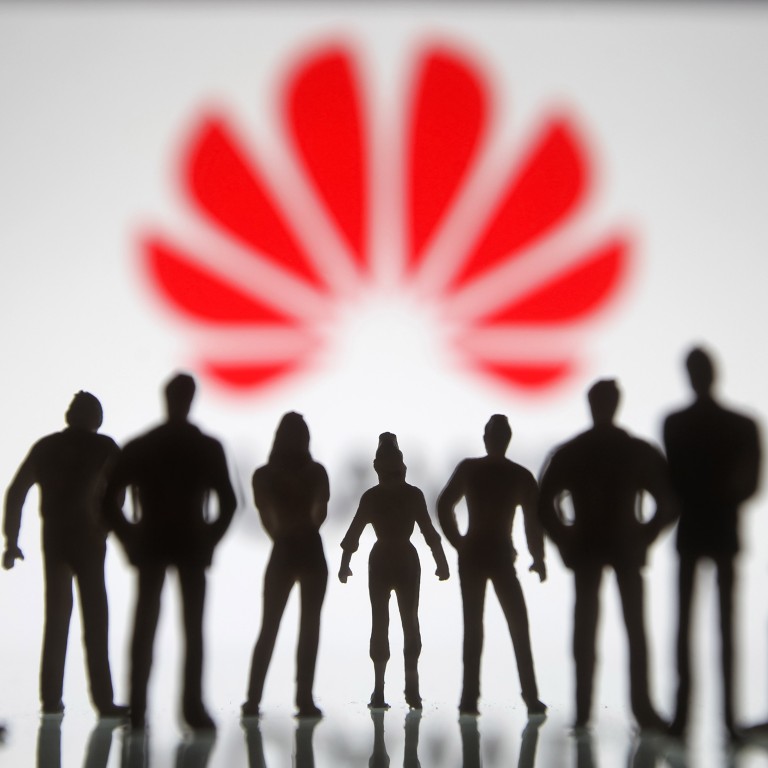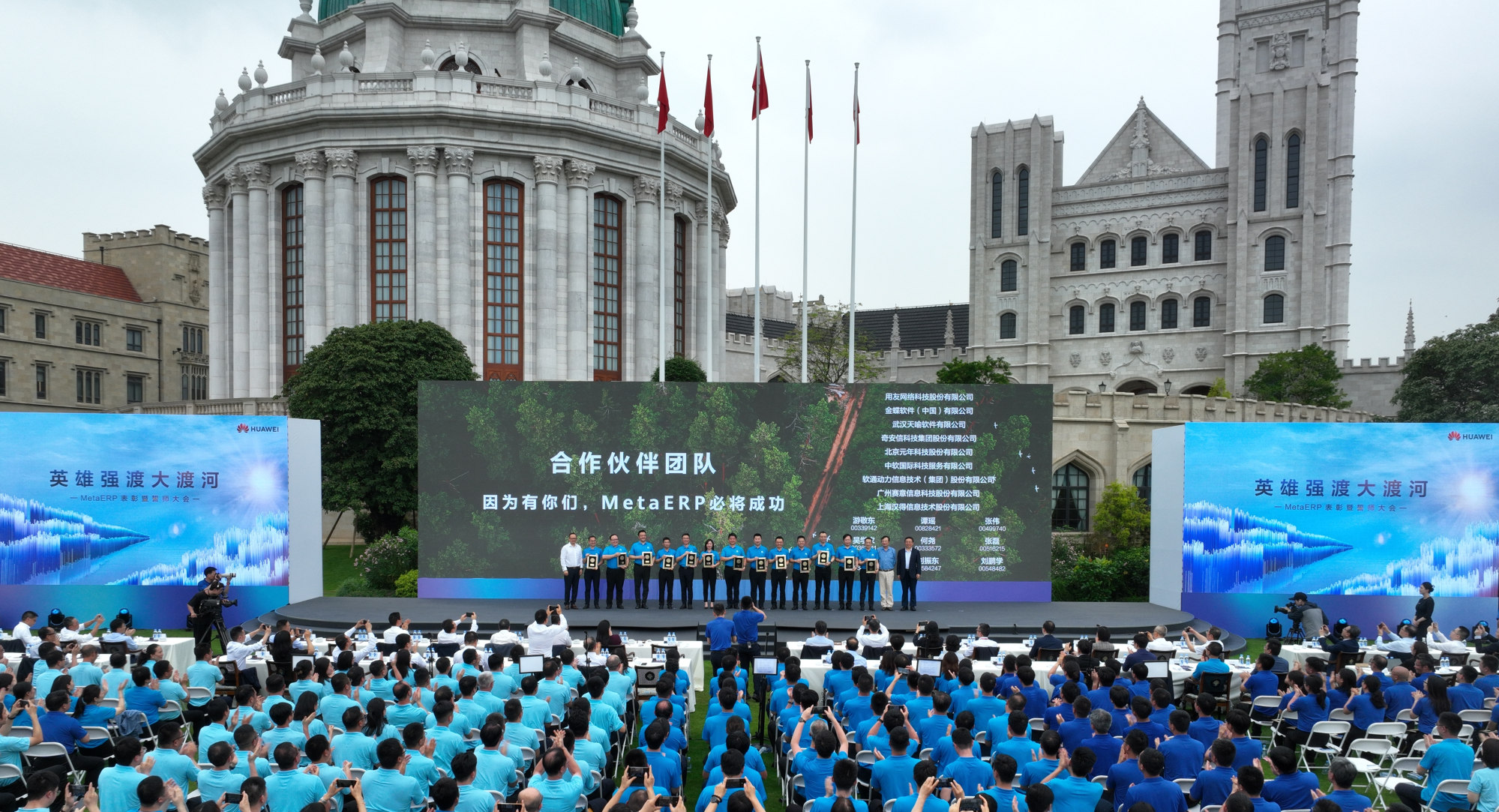Advertisement
Advertisement

Tech war: Huawei shifts to self-developed business management system MetaERP to cut reliance on foreign tech amid US trade sanctions
- MetaERP, over which Huawei has ‘complete, full-stack control’, was built on the back of the company’s in-house operating system and database
- The development of MetaERP reflects the lengths taken by Huawei to strengthen its global operations, as US trade sanctions continue to bite
Iris Dengin Shenzhen
Chinese telecommunications equipment powerhouse Huawei Technologies Co said it has switched to its self-developed enterprise resource planning (ERP) system, which marks the company’s latest effort to cut reliance on foreign-sourced technologies amid its struggles with US trade sanctions.
Shenzhen-based Huawei on Thursday said the firm’s new MetaERP represents “the most extensive and complex transformation project” it has ever undertaken, involving several thousand people who helped develop a business management software built on the back of its in-house operating system and database over which the company has “complete, full-stack control”.
An ERP system is used to efficiently manage all of a company’s major day-to-day business processes, including finance, human resources, supply chain, procurement, manufacturing, sales and various other services.
“Innovation is only possible with an open mind, and thriving is only possible when we work together,” Meng Wanzhou, Huawei’s rotating chairwoman and chief financial officer, said on Thursday at a ceremony in the southern industrial city of Dongguan, where the company honoured the contribution of all the employees and corporate partners involved in the firm’s MetaERP project.

MetaERP is now behind Huawei’s management of all its day-to-day processes and at least 80 per cent of its business data, after passing tests covering monthly, quarterly and annual settlements, according to the privately-held company.
The development of MetaERP reflects the lengths taken by Huawei to strengthen its global operations, as trade sanctions continue to bite and the company weighs its response to a US-China decoupling after reports that the Biden administration will cut off the firm from all of its American suppliers.
Huawei had received notifications from its ERP suppliers that their services would be suspended just days after Washington added the Chinese firm to a trade blacklist in May 2019. “Any issue with the [ERP] system would threaten to paralyse the ‘nervous system’ of our entire business,” Huawei board member Tao Jingwen, also president of the firm’s quality, business process and information technology management department, said at the ceremony on Thursday.
“We were cut off from the old ERP system and other core operation and management systems three years ago,” Tao said. “Today, we are proud to announce that we have broken through that blockade. We have survived!”
Huawei has replaced 13,000 parts, redesigned circuits to beat US sanctions
Huawei has replaced 13,000 parts, redesigned circuits to beat US sanctions
Huawei founder and chief executive Ren Zhengfei initially disclosed the company’s launch of MetaERP in a speech published last month. In the same speech, Ren said Huawei replaced more than 13,000 components in its range of products with local substitutes and redesigned over 4,000 circuit boards in the past three years, in response to US trade sanctions.
The shift to MetaERP is in line with Chinese President Xi Jinping’s previous call for tech self-reliance, including domestic replacement of foreign software and operating systems.
Before it was slapped with restrictions under Washington’s Entity List in 2019, Huawei had counted US enterprise software giant Oracle Corp among its ERP suppliers for more than two decades. Huawei was barred from doing business with American firms after the US Department of Commerce said the Chinese firm was “engaged in activities that are contrary to US national security or foreign policy interest”.
Huawei has scrambled to adapt its production of smartphones and telecoms network equipment amid tightened trade restrictions imposed by Washington in 2020, covering access to semiconductors developed or produced using US technology, from anywhere.
Huawei’s Meng Wanzhou faces uphill battle in reversing flat revenue, plummeting profits
Huawei’s Meng Wanzhou faces uphill battle in reversing flat revenue, plummeting profits
Huawei declined to comment on whether it would open up MetaERP to external clients in future.
Entering the commercial ERP market could help Huawei further diversify its operations, after US sanctions hobbled its once-lucrative smartphone business. The company remains the world’s biggest telecoms equipment vendor on the back of demand in its home market.
Eric Xu Zhijun, Huawei’s rotating chairman, last month reiterated that the company has stepped up development of domestic replacements for electronic components, an effort which began a decade ago – long before it was sanctioned by the US. But he did not provide an update on the company’s progress in finding new replacement for smartphone chips.
In December, Huawei finally ran out of in-house-designed semiconductors for its smartphones after US trade sanctions effectively cut the company’s access to advanced new chips, according to a report by Counterpoint Research.

17
